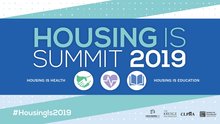0
Report
Community:
Mar 18, 2025
There are approximately 430 languages spoken in the United States, making this country one of the most linguistically rich nations in the world. This linguistic diversity is a strength. Indeed, decades of scientific research show that bilingualism is associated with a host of positive outcomes - cognitive, academic, economic, social, and health - for children and adults, for those from multilingual households and for those from monolingual English speaking households. Bilingualism is the norm and not the exception in most other nations. For example, while 92% of Europeans speak two or more languages, only 20% of Americans are bilingual. What’s worse, currently only about 8% of multilingual children receive dual language education, leaving mounds of unmet potential on the table and a lingering gap in the multilingual advantage that will likely grow, not shrink, between the United States and other nations. Consider these findings summarized in a recent report by the Century Foundation and the Children’s Equity Project.
Check out our latest reports on the benefits of bilingualism, equitable access to dual language education, and a guide for increasing high quality dual language education from the early years to the early grades.
Authored by: The Century Foundation and the Children’s Equity Project
Topics: Communications, Education, Racial inequalities
 Shared by Housing Is
Shared by Housing Is
Housing Is posted a
on Mar 18, 2025
The Century Foundation and the Children’s Equity Project
There are approximately 430 languages spoken in the United States, making this country one of the most linguistically rich nations in the world. This linguistic diversity is a strength.
0
Report
Community:
Nov 15, 2017
Federal, state, and local policies focused on neighborhood improvement have long emphasized the need for community organizations to share information, coordinate activities, and collaborate in the delivery of services. These partnerships build “community capacity,” as a way of promoting local problem solving and community well-being over the longer term. But, there has been only limited research on which patterns of neighborhood networks are most conducive to implementing effective collective work. This report uses social network analysis, drawing from a network survey, and extensive field research to ask how specific patterns of partnership promote better-implemented collaborations that in turn can successfully inform public policy.
The findings in this report have a qualitative, observable component, making it possible for funders to identify neighborhoods with advantageous structural supports before choosing to invest in that location, and for practitioners to support certain patterns of community activity.
Authored by: David M. Greenberg for MDRC
Topics: Communications, Community development, Data sharing, Legislation & Policy, Partnerships
 Shared by Housing Is
Shared by Housing Is
Housing Is posted a
on Oct 15, 2020
David M. Greenberg for MDRC
Federal, state, and local policies focused on neighborhood improvement have long emphasized the need for community organizations to share information, coordinate activities, and collaborate in the delivery of services.
0
Communications
Community: CLPHA COVID-19 Coordination
Mar 23, 2020
The National Asian Pacific Center on Aging has launched a an automated COVID-19 in-language helpline and website for older adults and their caregivers.The helpline offers information on prevention, symptoms, and planning in 8 different languages. Each language will have a dedicated 1-800 line so that older adults who are limited English-proficient can immediately learn about the COVID-19 without having to navigate through difficult English prompts.
Authored by: National Asian Pacific Center on Asian
Topics: Communications
 Shared by Kirsten Greenwell
Shared by Kirsten Greenwell
Kirsten Greenwell posted a
on Mar 23, 2020
National Asian Pacific Center on Asian
The National Asian Pacific Center on Aging has launched a an automated COVID-19 in-language helpline and website for older adults and their caregivers.The helpline offers information on prevention, symptoms, and planning in 8 different languages.
0
Communications
Community: CLPHA COVID-19 Coordination
Mar 23, 2020
Special edition of CLPHA newsletter detailing the organization's efforts in response to COVID-19.
Authored by: CLPHA
Topics: Advocacy, CLPHA, Communications, Health, Seniors
 Shared by Steve Lucas
Shared by Steve Lucas
Steve Lucas posted a
on Mar 23, 2020
Special edition of CLPHA newsletter detailing the organization's efforts in response to COVID-19.
0
Communications
Community: CLPHA COVID-19 Coordination
Mar 17, 2020
Offers community-specific COVID-19 mitigation plans and guidance on how to prepare and take action for COVID-19 at home and at workplaces, schools, childcare programs, colleges, universities, large community events/mass gatherings, homeless shelters, and other locations.
Authored by: CDC
Topics: Communications
 Shared by Kirsten Greenwell
Shared by Kirsten Greenwell
Kirsten Greenwell posted a
on Mar 17, 2020
Offers community-specific COVID-19 mitigation plans and guidance on how to prepare and take action for COVID-19 at home and at workplaces, schools, childcare programs, colleges, universities, large community events/mass gatherings, homeless shelters, and other locations.
0
Communications
Community: CLPHA COVID-19 Coordination
Mar 17, 2020
Print resources from the CDC about coronavirus symptoms, prevention, and treatment to distribute and post in your communities.
Authored by: CDC
Topics: Communications
 Shared by Kirsten Greenwell
Shared by Kirsten Greenwell
Kirsten Greenwell posted a
on Mar 17, 2020
Print resources from the CDC about coronavirus symptoms, prevention, and treatment to distribute and post in your communities.
0
Video
Community:
May 24, 2019
Join CLPHA and the Kresge Foundation as we announce the release of our new report, Eliminating Barriers to Postsecondary Success: Cross-Sector Collaborations to Improve Postsecondary Achievement for Students Served by Public Housing Authorities. The report provides an overview of promising practices at the intersection of public housing providers and higher education shared during a convening of five pioneering PHAs and their postsecondary partners. This press event is open to all attendees and will be immediately followed by a panel discussion, which will spotlight the innovative housing and postsecondary partners featured in the report.
Authored by: Housing Is, CLPHA
Topics: CLPHA, Communications, Education, Homelessness, Housing, Partnerships, Post-secondary
 Shared by Housing Is
Shared by Housing Is
Housing Is posted a
on May 24, 2019
Join CLPHA and the Kresge Foundation as we announce the release of our new report, Eliminating Barriers to Postsecondary Success: Cross-Sector Collaborations to Improve Postsecondary Achievement for Students Served by Public Housing Authorities.
0
Video
Community:
Resident story gallery
Authored by: National Housing Trust and Enterprise Community Partners
Topics: Communications, Homelessness, Housing, Low-income
 Shared by Housing Is
Shared by Housing Is
Housing Is posted a
on May 13, 2019
National Housing Trust and Enterprise Community Partners
 Shared by Housing Is
on Mar 18, 2025
Shared by Housing Is
on Mar 18, 2025
 Shared by Housing Is
on Oct 15, 2020
Shared by Housing Is
on Oct 15, 2020
 Shared by Kirsten Greenwell
on Mar 23, 2020
Shared by Kirsten Greenwell
on Mar 23, 2020
 Shared by Steve Lucas
on Mar 23, 2020
Shared by Steve Lucas
on Mar 23, 2020
 Shared by Kirsten Greenwell
on Mar 17, 2020
Shared by Kirsten Greenwell
on Mar 17, 2020
 Shared by Kirsten Greenwell
on Mar 17, 2020
Shared by Kirsten Greenwell
on Mar 17, 2020

 Shared by Housing Is
on May 24, 2019
Shared by Housing Is
on May 24, 2019

 Shared by Housing Is
on May 13, 2019
Shared by Housing Is
on May 13, 2019



